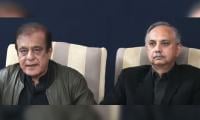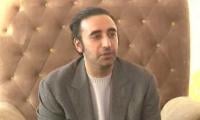KARACHI: The Toshakhana verdict was expected, Imran Khan’s legal team had put up a weak defence, but the trial was done in a hurry and the method used to decide the case leaves much to critique, say legal experts.
Journalist and lawyer Muneeb Farooq says that this was “an expected verdict. The case had been going on for a while now and it was highly likely that Imran Khan was going to get convicted. The response from his legal team was quite weak. There was apparently no defence. If you look at the documents, Imran Khan did get the gifts from the Toshakhana. While it was legal to that extent, he then sold those gifts and did not declare the amount in his nomination papers which he was supposed to do”.
Lawyer Abdul Moiz Jaferii, however, says that while “the Toshakhana case against Imran Khan was a relatively strong one compared to the other charges currently pending against him, the method in which it was finally decided is farcical”. He offers an explanation for this opinion: “The Islamabad High Court had ordered the trial court judge to hear Imran’s lawyers on the merits and then decide accordingly. But he used their [Imran’s lawyers] absence as a way to state that the opportunity of hearing to be afforded to Imran was satisfied” and so he went on to give the verdict.
According to Supreme Court advocate Basil Nabi Malik, “for all its merits and demerits, the [Toshakhana] judgment will not augur well for the credibility of the judiciary. Just as the Panama judgment has come to be seen as more of an injustice than the delivery of justice, this judgment, and the manner in which it was delivered, will not go down well in history. Judicial credibility is established by consistency and predictability of judicial precedent. This is not going to serve as an example of that.”
In a more technical reading of the case, Barrister Ali Tahir says that in his view “the proceedings were not maintainable as Section 137(4) of the Elections Act 2017 categorically states that a member of the National Assembly can only be proceeded for ‘corrupt practices’ within 120 days of the submission of the statement (s) of assets and liabilities; in the instant case, since a person has been prosecuted for an offence, hence the intention of the legislation was to protect persons from irregularities being dug up from years ago for which he may not be able to put up an appropriate defence.”
Moiz Jaferii adds that the way the verdict was given is also “unacceptable in terms of criminal procedure. If Imran was absent, the judge could have compelled his presence, by ordering the police to present him. Had the police been unable to produce Imran, the court could have declared him a proclaimed offender and proceeded to disqualify him on that basis.”
For Muneeb Farooq, though, “ever since the [Toshakhana] case started, Imran’s lawyers were only focused on the technical points.” He concedes that timing may be of the essence here and that “somehow the trial was done hurriedly -- but, though one cannot give a watertight guarantee that Imran Khan was given a fair trial per the constitution, it was highly likely that he would be convicted in this case”. He adds that Imran now “stands disqualified to become a member of parliament for the next five years via this verdict. Unless he gets relief from a high court, which his lawyers plan to petition, his conviction and disqualification stand.” Barrister Tahir feels that the quantum of sentence is a surprise: “the maximum punishment must only be given for exceptional cases. In this case, I believe a three-year sentence only for a mere misdeclaration is not proportionate”, adding that in his opinion the conviction “will not be able to sustain in appeal”.Lawyer Waqqas Mir looks at the precedent set by the verdict: “This decision, like others in our chequered legal and political history where former prime ministers were punished, won’t be judged kindly by history. The sad irony is that similarly hollow decisions were celebrated by the person who is now the victim. Such convictions may be a short-term solution for advancing a strategic political goal but for people who know that justice is a process — and not just a result obtained through methods lacking transparency — this represents another tragic chapter.”
Failure to identify, prosecute real perpetrators, conspirators and planners has fuelled ongoing criticism of...
CM has set a new benchmark for farmer welfare through these innovative programmes
Muhammad Ayub Chaudhry, Additional Secretary, Interior Ministry, directed to report to Establishment Division
What lies in centre of reform effort is targeting of high-value non-filers, says Khurram Schehzad
Sindh CM says provincial govt has solarised Khipro and two villages of Sanghar district
This decision was taken by the SIFC’s EC meeting on December 11, 2024







